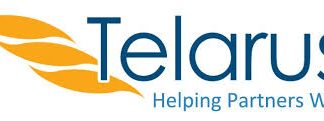The venerable IT computing giant Dell is planning to go private in a $24.4 billion deal, with Michael Dell himself leading the way away from quarterly earnings and investor calls. Prognostications are mixed as to the wisdom of the move overall, but the deal could be a windfall for Dell channel partners.
Dell, which enjoys a market cap of around $17-$25 billion (down from its “you gotta get a Dell” PC heyday of $122 billion in 1999), is offering shareholders $13.65 per share in a leveraged buyout play (that’s a 25-percent premium over the share price of $10.88 on January 11).
The deal will be supported by more than $15 billion of debt financing raised by at least four banks and Microsoft, which is extending a $2 billion loan to participate. Silver Lake and MSD Capital are also contributing significant funding. And Michael Dell is contributing his entire 14 percent stake in Dell towards the deal, or about $3.7 billion.
In other words, what it’s spending to buy itself is more than what the company is worth—a common tactic when the company at issue is in growth mode and holds big future promise. But given Dell’s slow-to-pivot history in terms of technology development, being weighed down by that kind of debt may ultimately hamper its ability to keep up with market trends, as its rival HP was quick to opine.
“Dell has a very tough road ahead. The company faces an extended period of uncertainty and transition that will not be good for its customers,” HP said in a prepared statement. “And with a significant debt load, Dell’s ability to invest in new products and services will be extremely limited.”
The company added, “leveraged buyouts tend to leave existing customers and innovation at the curb. We believe Dell’s customers will now be eager to explore alternatives, and HP plans to take full advantage of that opportunity.”
So what does this mean for the channel program? Arguably the channel hallmarks of lower acquisition costs and the ability to get products out on the street quickly would point to Dell relying more heavily on that arena to bolster new revenue as it goes through the transition (it should be noted that the deal is subject to shareholder approval).
Techaisle analyst Anurag Agrawal has been checking in periodically with Greg Davis, vice president and general manager of global commercial channels for Dell, since Dell embarked on a massive channels ramp-up beginning in early 2011—and he says he’s confident in Dell’s commitment to continue to invest VARs and solution providers.
“Just reviewing the notes of the previous two years it hit me squarely in my face that Dell’s channels team has been on a restless pursuit of simplicity, training and enablement, winning the datacenter together with the channel, and partner profitability,” Agrawal wrote in a blog.
By the fall of last year, Dell had 130,000 channel partners, 35 percent of commercial business revenue was funneling through channels, 142,000 training courses had been delivered in the year, number of deal registrations had reached 65,000, and there were 3,600 preferred and premier channel partners.
“Dell has the most confident and competent channel partners in the world,” Davis told Agrawal at the time.
Agrawal argues that the intense growth trajectory of the Dell channel in just two years is testament to a long-term commitment to indirect sales on behalf of the tech giant, which has previously been known for its vast direct and retail channel approach.
Agrawal recapped the greatest hits of Dell’s transformation into an indirect channel-friendly company, beginning in 2011.
Early that year, when 30 percent of Dell’s commercial business had started to come from channels and 58,000 registration deals were closed, Dell began the process of delivering 75,000 training modules to its partners.
“With the acquisition of Force10 Networks Dell announced enhanced network certification programs and 130 premier partners got their certifications,” said Agrawal. “Davis had mentioned that top 10 partners who invested most in training had seen 110 percent growth in revenue.”
Meanwhile, knowing that as-a-service and cloud applications were threatening VARs’ traditional bread-and-butter business, he noted that Dell launched cloud channel programs in the spring of 2012, along with a technical services team to help partners sell server and storage data center solutions.
“Dell now had roughly 250 premium partners and had delivered 135,000 training modules in [the beginning of 2012],” Agrawal noted.
By last summer, Dell was seeing 62,000 deal registrations per quarter coming through partners, with a 72 percent approval rate. And, 35,000 training modules were being delivered per quarter, the number of premier and preferred partners had jumped to 2,500.
Also, “Asia/Pacific channel programs were being strengthened, SonicWALL was integrated and specific courses were introduced on how to talk to a CIO, value of integrated datacenter,” Agrawal noted. “Above all social media training programs were launched for the benefit of the channels.”
Going forward, Agrawal figures that channel partners will continue to be an important piece of the puzzle for Dell, despite its private status. “It has been a long way from direct PC selling to indirect solution selling,” he noted. “Real progress has been made. Dell’s channel executives are an end-to-end solutions empowering team for the channels. Not all channels will thrive but those that are equally committed to learn, adapt and practice will certainly succeed.”









